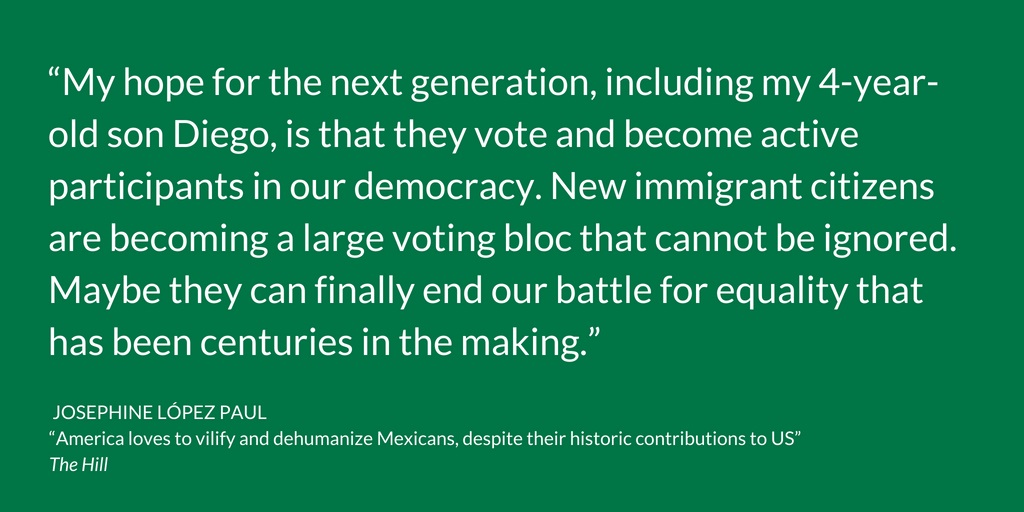Earlier this year in February, eighty-six members of the House of Representatives sent a letter to US Citizenship & Immigration Services (USCIS) that demanded accountability for the agency’s increasingly lengthy processing delays. Now, USCIS is looking to transfer cases out of overburdened offices to even out processing times across the country. The strategy, however, will only apply to applications for permanent residency (green cards) and applications for naturalization (citizenship).
Read moreNational Law Review: “Slow Immigration Processing Times Draw Criticism and Questions.”
Processing times for immigration cases have dramatically increased in the last few years to “crisis levels under the Trump Administration,” according to an American Immigration Lawyers Association (AILA) policy brief. These delays in some cases have caused gaps in work authorization and loss of employment, and the same AILA brief notes that the “ballooning delays leave families—including families with US citizen spouses and children—in financial distress, expose protection-seekers to potential harm by bad actors, and threaten the viability of American companies facing workforce gaps.”
Read moreCNN: “Ruth Bader Ginsburg speaks at naturalization ceremony on the anniversary of Bill of Rights signing.”
Supreme Court Justice Ruth Bader Ginsburg recently spoke at a naturalization ceremony in the rotunda of Washington D.C.’s National Archives where thirty-one men and women become new citizens. As she’s done before, Justice Ginsburg shared her own immigration story: "My own father arrived in this land at age 13 with no fortune and speaking no English,” she said. “My mother was born four months after her parents—with several children in tow—came by ship to Ellis Island. My father and my grandparents reached, as you do, for the American dream." She asked the attendees: “What is the difference between a bookkeeper in New York City's Garment District and a Supreme Court Justice? One generation.”
Read moreThe Public Charge Rule: a Q&A
As part of every Green Card (immigrant visa) petition foreign nationals must demonstrate they will be able to support themselves and not become “public charges.” Additionally, every time foreign nationals seek admission to the US, they must demonstrate that will not become “public charges.” A “public charge” is someone the United States believes is primarily dependent on the federal government to subsist. On September 22, 2018, the Department of Homeland Security (DHS) released an advance copy of the Notice of Proposed Rulemaking (NPRM) related to the public charge ground of inadmissibility.
Read moreFight for Our Place
The Next Generation
NPR: "Under A Trump Proposal, Lawful Immigrants Might Shun Medical Care"
The Trump administration is considering proposing a policy change that could have the result of discouraging immigrants seeking permanent residency (i.e., a Green Card) from using government-supported health care. Under the administration's draft plan, an immigrant in valid legal status could be prevented from obtaining permanent residency if they have used Medicaid, a subsidized Obamacare plan, food stamps, tax credits or other non-cash government benefits, according to a draft of the plan published by The Washington Post. Legal immigrants could even be prevented from obtaining a Green Card if their US-citizen child uses such benefits.
Read moreUSCIS to Recall Incorrectly Dated Green Cards
US Citizenship and Immigration Services (USCIS) has announced that beginning May 14, 2018, the agency will begin recalling approximately 8,543 Permanent Resident Cards (i.e., Green Cards) due to a production error. The Green Cards, printed with an incorrect “Resident Since” date and mailed between February and April 2018, were for approved Form I-751, Petition to Remove Conditions on Residence, for spouses of US citizens. Since spouses of US citizens may apply for naturalization after three years of permanent residency (and when they meet other requirements), the incorrect date on these Green Cards could potentially cause applicants to wait longer than necessary to apply for naturalization.
Read moreCelebrate Citizenship
This week I was thrilled to attend the citizenship ceremony for my sister. While it's always thrilling to watch foreign nationals naturalize and become US citizens, especially when it’s my sister, this was a special ceremony at the New York Historical Society with Supreme Court Justice Ruth Bader Ginsburg administering the citizenship oath. Justice Ginsburg, who will mark her 25th year on the bench in August, addressed the 201 new citizens from fifty-nine countries speaking of her father's own immigration story, and said: “We are a nation made strong by people like you.” Acknowledging that the US is an imperfect union, she encouraged the new citizens to vote and foster unity. “We have made huge progress, but the work of perfection is scarcely done,” she said. Yusif Abubakari, born in Ghana, tells the New York Times. “She is supposed to be at home but she came because of me, because of us, and that made me feel so special today. May God bless her and give her more life and prosperity.” My sentiments exactly. Oh yes, and congratulations to my sister!
What Can I Do Without an Immigration Lawyer?
I will be the first to tell you that immigration law is complex and changing and requires vigilance and care in preparing applications, but there is no requirement that foreign nationals, their employers, or family members use a lawyer. It is also true that under the Trump administration, foreign nationals (and even immigration practitioners) have become more cautious and even hesitant about filing petitions given the increased scrutiny of their applications by immigration officials and consular officers; nevertheless, there are certain applications that should still be straightforward enough to file without legal assistance. Cases filed by individuals without legal representation are subject to the same review and adjudication process as others filed by attorneys. We’ve previously discussed why an experienced immigration attorney can be valuable and in some cases absolutely recommended, but in this post we’ll more closely examine the types of applications and petitions that foreign nationals in most situations can prepare and file on their own.
Read more


